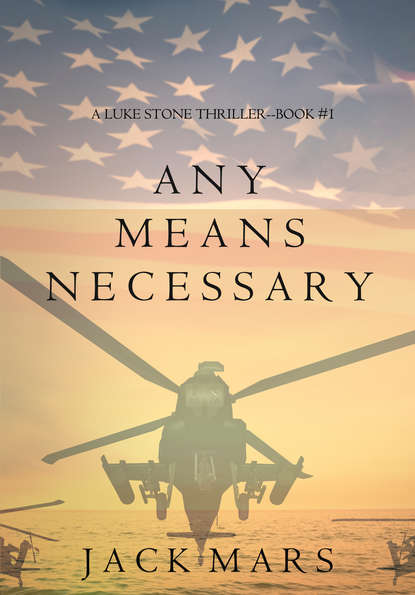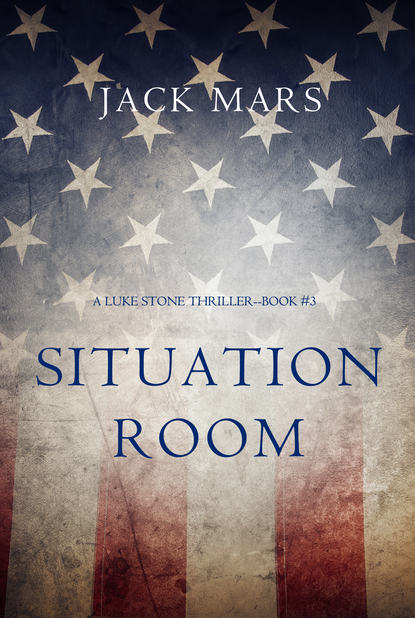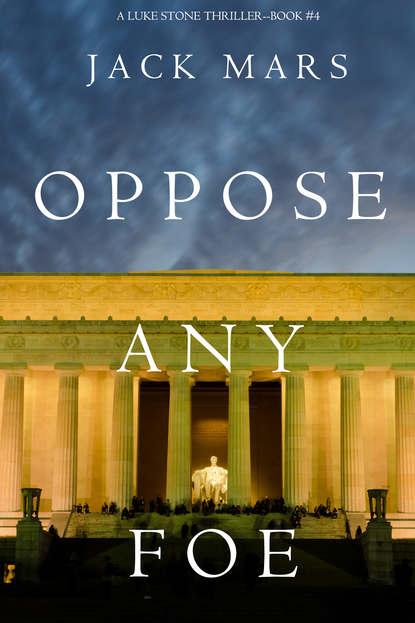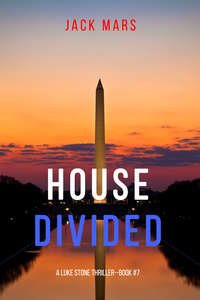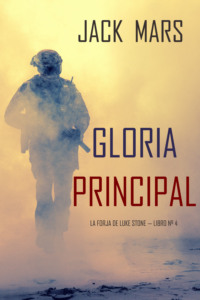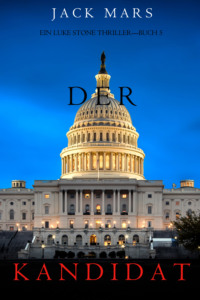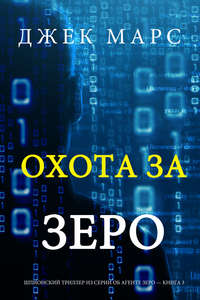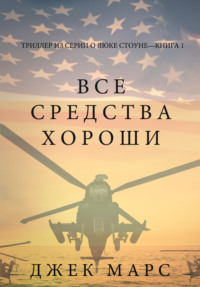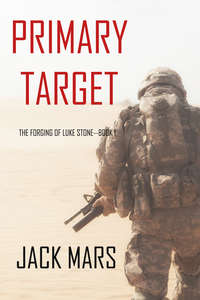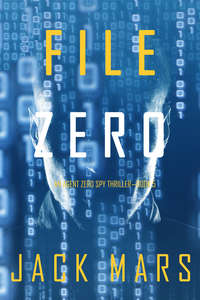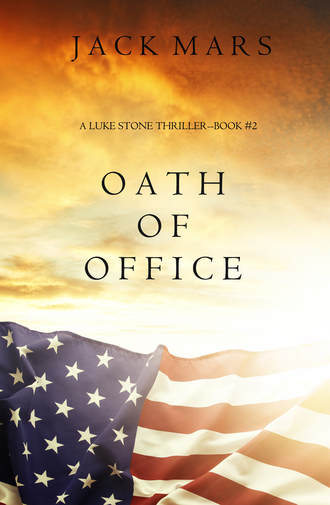
Полная версия
Oath of Office
“Good shooting, boys,” he said into the walkie-talkie. “Be sure to sink their boat while you’re at it.”
Brown smirked to himself. They could hold out here for days.
*It was a rout. There were men down all over the place.
Luke walked toward the house, scanning carefully. The worst of the shooting was coming from a man in the upstairs window. He was making Swiss cheese out of these cops. Luke was close to the side of the house. From his angle he didn’t have a shot, but the man also probably couldn’t see him.
As Luke watched, the bad guy finished a downed cop with a kill shot to the back of the neck.
“Ed, how’s your look on that upstairs shooter?”
“I can put one right down his throat. Pretty sure he doesn’t see me over here.”
Luke nodded. “Let’s do that first. It’s getting messy out here.”
“You sure you want that?” Ed said.
Luke studied the upstairs. The windowless room was on the far side of the house from the sniper’s nest.
“I’m still banking they’re in that room with no windows,” he said.
Please.
“Just say the word,” Ed said.
“Go.”
Luke heard the distinctive hollow report of the grenade launcher.
Doonk!
A missile flew from behind the line of cars across the street. It had no arc – just a sharp flat line zooming up on a diagonal. It hit right where the window was. A split second passed, then:
BANG.
The side of the house blew outward, chunks of wood, glass, steel, and fiberglass. The gun in the window went silent.
“Nice, Ed. Real nice. Now give me that hole in the wall.”
“What do you say?” Ed said.
“Pretty please.”
Luke raced around and ducked behind a car.
Doonk!
Another flat line zoomed by, four feet above the ground. It hit the side of the house like a car crash, and punched a gaping wound through the wall. A fireball erupted inside, spitting smoke and debris.
Luke nearly jumped up.
“Hold on,” Ed said. “One more on its way.”
Ed fired again, and this one went deep into the house. Red and orange flared through the hole. The ground trembled. Okay. It was time to go.
Luke climbed to his feet and started running.
*The first explosion was above his head. The entire house shook from it. Brown glanced at the upstairs hallway on his screen.
The far end of it was gone. The spot where Smith had been stationed was no longer there. There was just a ragged hole where the window and Mr. Smith used to be.
“Mr. Smith?” Brown said. “Mr. Smith, are you there?”
No answer.
“Anybody see where that came from?”
“You’re the eyes, Yank,” came a voice.
They had trouble.
A few seconds later, a rocket hit the front of the house. The shockwave knocked Brown off his feet. The walls were collapsing. The kitchen ceiling suddenly caved in. Brown lay on the floor among falling junk. This had gone the opposite of what he expected. Cops rammed down doors – they didn’t fire rockets through walls.
Another rocket hit, this one deep inside the house. Brown covered his head. Everything shook. The whole house could come down.
A moment passed. Someone was screaming now. Otherwise, it was quiet. Brown jumped up and ran for the stairs. On the way out of the room, he grabbed his handgun and one grenade.
He passed through the main room. It was carnage, a slaughterhouse. The room was on fire. One of the Beards was dead. More than dead – blown to shredded pieces all over the place. The Australian had panicked and taken his mask off. His face was covered in dark blood, but Brown couldn’t tell where he was hit.
“I can’t see!” the man screamed. “I can’t see!”
His eyes were wide open.
A man in body armor and helmet stepped calmly through the shattered wall. He quieted the Australian with an ugly blat of automatic gunfire. The Australian’s head popped apart like a cherry tomato. He stood without a head for a second or two, and then dropped bonelessly to the floor.
The second Beard lay on the ground near the back door, the double-steel reinforced door which Brown had been so delighted about just a few moments ago. The cops were never going to get through that door. Beard #2 was cut up from the explosion, but still in the fight. He dragged himself to the wall, propped himself upright, and reached for the gun strapped at his shoulder.
The intruder shot Beard #2 in the face at point-blank range. Blood and bone and gray matter splattered against the wall.
Brown turned and stormed up the stairs.
*The air was thick with smoke, but Luke saw the man bolt for the stairs. He glanced around the room. Everyone else was dead.
Satisfied, he took the stairs at a run. His own breathing sounded loud in his ears.
He was vulnerable here. The stairs were so narrow it would be the perfect time for someone to spray gunfire down on him. No one did.
At the top, the air was clearer than below. To his left was the shattered window and wall where the sniper had taken position. The sniper’s legs were on the floor. His tan work boots pointed in opposite directions. The rest of him was gone.
Luke went right. Instinctively, he ran to the room at the far end of the hall. He dropped his Uzi in the hallway. He took the pump shotgun off his shoulder and dropped that, too. He slid his Glock from its holster.
He turned left and into the room.
Becca and Gunner sat tied to two folding chairs. Their arms were pulled behind their backs. Their hair was wild, as if some funny person had just mussed it with his hand. Indeed, a man stood behind them. He dropped two black hoods to the floor and placed the muzzle of his gun to the back of Becca’s head. He crouched very low, putting Becca in front of him as a human shield.
Becca’s eyes were very wide. Gunner’s were tightly closed. He was weeping uncontrollably. His entire body shook with silent sobs. He had wet his pants.
Was it worth it?
To see them like this, helpless, in terror, had it been worth it? Luke had helped stop a coup d’état the night before. He had saved the new President from almost certain death, but was it worth this?
“Luke?” Becca said, as if she didn’t recognize him.
Of course she didn’t. He pulled his helmet off.
“Luke,” she said. She gasped, maybe in relief. He didn’t know. People made sounds in extreme moments. They didn’t always mean anything.
Luke raised his gun, sighting it directly between Becca’s and Gunner’s heads. The man was good. He wasn’t giving Luke anything to hit. But Luke left the gun pointed there anyway. He watched patiently. The man wouldn’t always be good. No one was good forever.
Luke felt nothing right now, nothing but… dead… calm.
He did not feel relief flooding his system. This wasn’t over yet.
“Luke Stone?” the man said. He grunted. “Amazing. You’re everywhere at once these past couple of days. Is it really you?”
Luke could picture the man’s face from the moment before he ducked behind Becca. He had a thick scar across his left cheek. He had a flat-top haircut. He had the sharp features of someone who had spent his life in the military.
“Who wants to know?” Luke said.
“They call me Brown.”
Luke nodded. A name that wasn’t a name. The name of a ghost. “Well, Brown, how do you want to do this?”
Below them, Luke could hear the police storming the house.
“What options do you see?” Brown said.
Luke stood without moving, his gun waiting for that shot to appear. “I see two options. You can either die right this minute or, if you’re lucky, in prison a long time from now.”
“Or I could blow your lovely wife’s brains all over you.”
Luke didn’t answer. He just pointed that gun. His arm wasn’t tired. It would never get tired. But the cops were coming upstairs in a minute, and that was going to change the equation.
“And you’ll be dead one second later.”
“True,” Brown said. “Or I could do this.”
His free hand dropped a grenade into Becca’s lap.
As Brown dashed away, Luke dropped the gun and dove for it. In one series of motions, he picked up the grenade, flipped it toward the back wall of the room, collapsed the two chairs, and pushed both Becca and Gunner to the ground.
Becca screamed.
Luke gathered them together, rough with it, no time for gentleness. He pushed them closer and closer, mounted them, blanketed them with his body, and with his armor. He tried to make them disappear.
For a split second, nothing happened. Maybe it was a ruse. The grenade was a fake, and now the man called Brown would have the drop on him. He would kill them all.
BOOOOOM!
The explosion came, deafening in the close confines of the room. Luke gathered them closer. The floor shook. Shards of metal sprayed him. He ducked his head low. Bare flesh on his neck was torn away. He covered them and held them.
A moment passed. His little family trembled beneath him, frozen in shock and fear, but alive.
Now it was time to kill that bastard. Luke’s Glock lay on the floor beside him. He grabbed it and jumped to his feet. He turned.
A huge ragged hole had been blown through the back of the room. Through it, Luke could see daylight and blue sky. He could see the dark green water of the bay. And he could see the man called Brown was gone.
Luke approached the hole from an angle, using the remnants of the wall to shield himself. The edges were a shredded mix of wood, broken drywall, and ripped up fiberglass insulation. He expected to see a body on the ground, possibly in several bloody pieces. No. There was no body.
For a split second, Luke thought he saw a splash. A man might have dived into the bay and disappeared. Luke blinked to clear his eyes, then looked again. He wasn’t sure.
Either way, the man called Brown was gone.
CHAPTER THREE
9:03 p.m.
Bethesda Navy Medical Center – Bethesda, Maryland
The light of the laptop computer flickered in the semi-darkness of the private hospital room. Luke sat slumped in an uncomfortable armchair, staring at the screen, a pair of white ear buds extending from the computer to his ears.
He was almost breathless with gratitude and relief. His chest hurt from gasping for air the past four or five hours. He sometimes thought about crying, but he hadn’t done so yet. Maybe later.
There were two beds in the room. Luke had pulled some strings, and now Becca and Gunner lay in the beds, sleeping deeply. They were under sedation, but it didn’t matter. Neither of them had slept a wink between the time they were abducted and the moment when Luke stormed the safe house.
They had spent eighteen hours in sheer terror. Now they were out cold. And they were going to be out for a good long while.
Neither one of them had been hurt. True, they were going to carry emotional scars from this, but physically, they were fine. The bad guys did not harm the merchandise. Maybe Don Morris’s hand had been in there somewhere, protecting them.
He gave a brief thought to Don. Now that events had played out, it seemed right to do so. Don had been Luke’s greatest mentor. Since the time Luke joined Delta Force at twenty-seven years old, until early this morning, twelve years later, Don had been a constant presence in Luke’s life. When Don first created the FBI Special Response Team, he had made a place for Luke. More than that – he had recruited Luke, wined him, dined him, and stole him away from Delta.
But Don had turned at some point, and Luke never saw it coming. Don had been among the conspirators who had tried to topple the government. One day, Luke might understand Don’s reasoning for all this, but not today.
On the computer screen in front of him, a live stream played from the packed media room of what they were calling “the New White House.” The room had at most a hundred seats. It had a gradual slope, upward from the front, as though it doubled as a movie theater. Every seat was taken. Every space along the back wall was taken. Dense throngs of people stood in the wings on both sides of the stage.
Images of the house itself briefly appeared on the screen. It was the beautiful, turreted and gabled Queen Anne–style 1850s mansion on the grounds of the Naval Observatory in Washington, DC. And it was indeed white, for the most part.
Luke knew something about it. For decades, it had been the official residence of the Vice President of the United States. Now, and for the foreseeable future, it was the home and office of the President.
The screen cut back to the media room. As Luke watched, the President herself came to the podium: Susan Hopkins, the former Vice President, who had taken the oath of office this very morning. This was her first address to the American people as President. She wore a dark blue suit, her blonde hair in a bob. The suit seemed bulky, which meant she was wearing bulletproof material beneath it.
Her eyes were somehow both stern and soft – her media people had probably coached her to look angry, brave, and hopeful all at once. A top-flight makeup artist had covered the burns on her face. Unless you knew where to look, you wouldn’t even see them. Susan, as she had been her entire life, was the most beautiful woman in the room.
Her resume thus far was impressive. It included teenage supermodel, young wife of a technology billionaire, mom, United States Senator from California, Vice President, and now, suddenly, President. The former President, Thomas Hayes, had died in a fiery underground inferno, and Susan herself was lucky to be alive.
Luke had saved her life yesterday, twice.
He undid the mute feature on his computer.
She was surrounded by bulletproof glass panels. Ten Secret Service agents stood on the stage with her. The crowd of reporters in the room was giving her a standing ovation. The TV announcers were speaking in hushed tones. The camera panned, finding Susan’s husband, Pierre, and their two daughters.
Back to the President: she was holding her hands up, asking for quiet. Despite herself, she broke into a bright smile. The crowd erupted again. That was the Susan Hopkins they knew: the enthusiastic, gung-ho queen of daytime talk shows, of ribbon-cutting ceremonies and political rallies. Now her small hands made fists and she raised them high above her head, almost like a referee indicating a touchdown. The audience was loud and grew louder.
The camera panned. Hardened Washington, DC, and national journalists, one of the most jaded groups of people known to man, stood with moist eyes. Some of them were openly weeping. Luke caught a brief glimpse of Ed Newsam in a dark pin-striped suit, leaning on crutches. Luke had been invited as well, but he preferred to be here in this hospital room. He wouldn’t consider being anywhere else.
Susan came to the microphone. The audience quieted, just enough so she could be heard. She put her hands on the podium, as if steadying herself.
“We’re still here,” she said, her voice shaking.
Now the crowd exploded.
“And you know what? We’re not going anywhere!”
Deafening noise came through the ear buds. Luke turned the sound down.
“I want…” Susan said, and then stopped again. She waited. The cheering went on and on. Still she waited. She stepped back from the microphone, smiled, and said something to the very tall Secret Service man standing next to her. Luke knew him a little. His name was Charles Berg. He had also saved her life yesterday. Over an eighteen-hour span, Susan’s life had been on the line almost nonstop.
When the crowd noise died somewhat, Susan stepped back to the podium.
“Before we talk, I want you to do something with me,” she said. “Will you? I want to sing ‘God Bless America.’ It’s always been one of my favorite songs.” Her voice cracked. “And I want to sing it tonight. Will you sing it with me?”
The crowd roared its assent.
Then she did it. All by herself, in a small, untrained voice, she did it. There was no celebrity singer there with her. There were no world-class musicians accompanying her. She sang, just her, in front of a room full of people, and with hundreds of millions of people watching worldwide.
“‘God bless America,’” she began. She sounded like a little girl. “‘Land that I love.’”
It was like watching someone walk out onto a high wire between buildings. It was an act of faith. Luke’s throat felt tight.
The crowd did not leave her out there by herself. Instantly, they began to flood in. Better, stronger voices joined her. And she led them.
Outside the darkened room, somewhere down the hall in the quiet of an after-hours hospital, people on duty began to sing.
In the bed next to Luke, Becca stirred. Her eyes opened and she gasped. Her head darted left and right. She seemed ready to spring out of the bed. She saw Luke there, but her eyes showed no recognition.
Luke took out his ear buds. “Becca,” he said.
“Luke?”
“Yes.”
“Can you hold me?”
“Yes.”
He closed the cover to the laptop. He slid into the bed next to her. Her body was warm. He gazed at her face, as beautiful as any supermodel’s. She pressed herself tight against him. He held her in his strong arms. He held her so close, it was almost as if he wanted to become her.
This was better than watching the President.
Down the hall, and everywhere in the country, in bars, in restaurants, in homes, and in cars, the people sang.
CHAPTER FOUR
June 7th
8:51 p.m.
Galveston National Laboratory, campus of the University of Texas Medical Branch – Galveston, Texas
“Working late again, Aabha?” a voice said from Heaven.
The exotic, black-haired woman was almost ethereal in her beauty. Indeed, her name was a Hindi word for beautiful.
She was startled by the voice, and her body jerked involuntarily. She stood, wearing a white airtight containment suit, deep inside the Biosafety Level 4 facility at the Galveston National Laboratory. The suit which protected her also made her look almost like an astronaut on the moon. She always hated wearing the suit. She felt trapped inside of it. But it was what her job demanded.
Her suit was attached to a yellow hose which descended from the ceiling. The hose continually pumped clean air from outside the facility into the containment suit. Even if the suit ruptured, the positive pressure from the hose ensured that none of the laboratory air could get inside.
BSL-4 labs were the highest security laboratories in the world. Inside them, scientists studied deadly, highly infectious organisms that posed a severe threat to public health and safety. Right now, in her blue-gloved hand, Aabha held a sealed vial of the most dangerous virus known to man.
“You know me,” she said. Her suit had a microphone that would carry her voice to the guard watching her on closed circuit television. “I’m a night owl.”
“I know it. I’ve seen you here a lot later than this.”
She pictured the man watching over her. Tom was his name. He was overweight, middle-aged, she thought divorced. Just her and him, alone inside this big empty building at night, and he had very little to do but look at her. It would give her the creeps if she thought about it too much.
She had just removed the vial from the freezer. Moving carefully, she approached the biosafety cabinet, where under normal circumstances, she would open the vial and study its contents.
Tonight wasn’t normal circumstances. Tonight was the culmination of years of preparation. Tonight was what Americans called the Big Game.
Her co-workers at the lab, including Tom the night watchman, thought the beautiful young woman’s name was Aabha Rushdie.
It wasn’t.
They thought she had been born into a wealthy family in the great city of Delhi, in northern India, and that her family had moved to London when she was a young girl. It was laughable. Nothing like that had ever happened to her.
They thought she had obtained a Ph.D. in microbiology and extensive BSL-4 training from King’s College, London. This wasn’t true either, but it might as well be. She knew as much about handling bacteria and viruses as any Ph.D. candidate, if not more.
The vial she held contained a freeze-dried sample of the Ebola virus, which had wreaked such havoc in Africa in recent years. If it were just an Ebola virus sample taken from a monkey, or a bat, or even a human victim… that alone would make it very, very dangerous to handle. But there was much more to the story.
Aabha glanced at the digital clock on the wall. 8:54 p.m. One minute to go. She need only delay for a very short time longer.
“Tom?” she said.
“Yes?” came the voice.
“Did you watch the President on the TV last night?”
“I did.”
Aabha smiled. “What did you think?”
“Think? Well, I think we got problems.”
“Really? I like her very much. I think she is a great lady. In my country…”
The lights in the laboratory went out. It happened without any warning – no flickering, no beeping, nothing at all. For several seconds, Aabha stood in absolute darkness. The sound of convection fans and electrical equipment that was a constant background hum in the lab slowed to a halt. Then there was total silence.
Aabha put what she hoped was just the right note of alarm in her voice.
“Tom? Tom!”
“Okay, Aabha, it’s okay. Hold on. I’m trying to get my… What’s going on in there? My cameras are down.”
“I don’t know. I’m just…”
A bank of yellow emergency lights came on, and the fans started up again. The low light turned the empty lab into an eerie, shadowy world. Everything was dim, except for the bright red EXIT lights which shone in the semi-dark.
“Wow,” she said. “That was scary. For a minute there, my air hose stopped working. But it’s back on now.”
“I don’t know what happened,” Tom said. “We’re on reserve power all over the building. We have full-power backup generators that should have kicked on, but they didn’t. I don’t think this has ever happened before. I still don’t have my cameras. Are you okay? Can you find your way out?”
“I’m okay,” she said. “A little scared, but okay. The exit lights are on. Can I just follow them?”
“You can. But you need to follow all safety protocols, even in the dark. Chemical shower for the suit, regular shower for you – all of it. Otherwise, if you feel like you can’t follow protocol, we need to wait until I can send someone in there, or until we get the power back up.”
Her voice shook a tiny amount. “Tom, my air hose went off. If it goes off again… Let’s just say I don’t want to be in here without my air hose. I can follow the protocols in my sleep. But I need to get out of here.”
“That’s fine. All procedures to the letter, though. I trust you. But I don’t have any lights. It looks like it’s going to be dark everywhere, the whole way out. The airlock was off for a minute, but it just came back on. It’s probably best if we get you out of there. Once you’re through the airlock, you shouldn’t have any problems. Let me know when you’re through, okay? I want to shut it down again to conserve power.”
“I will,” she said.
She moved slowly through the darkness toward the exit door to the airlock, the vial of Ebola still cupped in her gloved right hand. It would take twenty or thirty minutes to follow all procedures on her way out. That wasn’t going to happen. She planned to cut corners from here on out. This would be the fastest lab exit they had ever seen.
Tom was still talking to her. “Also, please make sure you secure all materials and equipment before you exit. We wouldn’t want anything dangerous floating around.”
She opened the first door and slid through. Just before it closed, she heard his voice for the last time.
“Aabha?” he said.
*Aabha drove the BMW Z4 convertible with the top down.
It was a warm night, and she wanted to feel the wind in her hair. It was her last night in Galveston. It was her last night as Aabha. She had accomplished her mission, and after five long years undercover, this part of her life was over.
It was an amazing feeling, to cast off an identity as though it were a suit of clothes. It was freedom, it was exhilaration. She felt like she could be the protagonist in a television advertisement.
She had grown tired of studious, serious Aabha a long time ago. Who would she become next? It was a delicious question.
The drive to the marina was brief, just a few miles. She pulled off the highway and down the ramp to the parking lot. She took her overnight bag and her purse out of the trunk and left the keys in the glove compartment. In an hour a woman she had never seen, but who had similar features to Aabha, would get in and drive it away. The car would be two hundred miles away by the morning.


